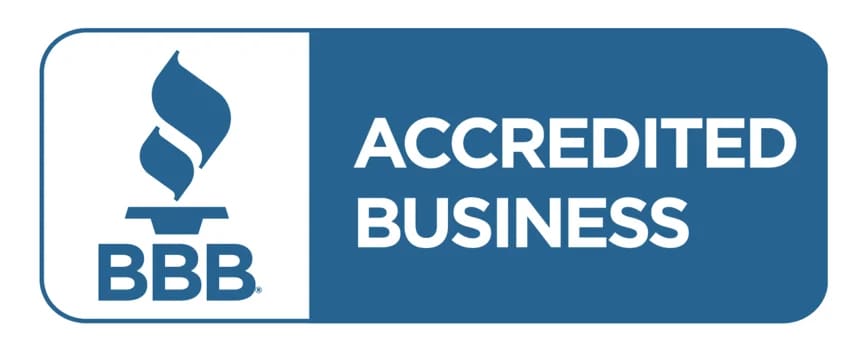Impaired Driving Care & Control
What is Impaired Driving Care & Control?
Care and control while impaired happens when the police find a person sitting in, stopped in, or even standing near a motor vehicle, and determine they have the care and/or control over the motor vehicle while they were impaired by alcohol or drugs.
Once the officer forms the opinion that:
- the person had the care and control of a motor vehicle, and
- their ability to drive was impaired by alcohol or a drug,
they can arrest the person for care and control of a motor vehicle while impaired.
Even if you weren’t driving, simply being in a position to set the vehicle in motion while impaired can result in serious criminal charges.

Penalties for Impaired Driving Care & Control
The penalties for impaired driving care & control are serious and are the same as if you were arrested for impaired driving:
- a criminal record for life
- jail for serious or repeat offences
- a fine of $1000 to $2000 dollars
- immediate 90 day licence suspension
- upon conviction an additional one year license suspension
- driver licence reinstatement fees of 600 dollars
- mandatory Ignition Interlock installed in any vehicle
- insurance rates of over $10,000 per year for 5 years
- possible loss of employment
A conviction for impaired driving can cost over fifty thousand (50,000) dollars in increase insurance rates, fees and fines over five (5) years.
Care & Control vs Impaired Driving
In Canada, being charged with impaired driving means you were actually driving a vehicle while impaired, while impaired care and control means you were in a position to drive (like sitting in the driver’s seat with the keys nearby) even if the car wasn’t moving.
The key difference is whether you were actively operating the vehicle or just had the ability to operate it. Here’s the quick breakdown:
- Impaired Driving: You were driving — even a few feet — while impaired.
- Impaired Care and Control: You weren’t driving, but you had control over the vehicle and could have driven.
Both charges are treated equally seriously, with the same penalties like fines, driving bans, a criminal record, and insurance increases.
Even just sitting behind the wheel while impaired can get you convicted — so it’s critical to understand how the law applies even if you didn’t think you were “driving.”
Defending Impaired Driving Care & Control Cases
Everyone is entitled when charged with a criminal offence to defend themselves in court. You may feel that if the police have arrested you for impaired driving that you’re automatically guilty, which is wrong.
For every impaired driving charge there are issues and defences available.
It’s your right under Canadian law to:
- have a lawyer challenge the evidence of the police,
- to have a Judge hear what happened and
- for the judge to make a decision about the guilt or innocence,
- not the police.
The law on impaired driving care and control is strict on the accused and police. The police and the crown attorney must do everything properly and legally to obtain a conviction against the accused.

Fighting Impaired Driving Care & Control
For the police and the crown attorney impaired driving care & control can be proven by:
- use of the vehicle, or
- the vehicle was able to be put in motion,
- that the driver intended to drive the motor vehicle
- the driver had the ability to drive and operate the vehicle
Showing that the accused’s ability was impaired by physical symptoms, e.g. unsteady on feet, slurred speech, strong smell of alcohol with results of a breathalyzer test would be used as evidence.
Care & Control Defences
Impaired driving care and control defences can include issues such as:
- right to speak with a lawyer in privacy
- have the police done everything properly
- right to have your trial in a reasonable period of time
- collection of evidence against the accused. e.g. breathalyzer tests
- have documents been properly submitted and prepared at the court
- can the prosecution prove the case beyond a reasonable doubt
There are defences to impaired driving charges, and at Charitsis Law we know the law on drinking and driving.
Care & Control – Sleeping & Not Driving
Many people believe they are doing the right thing by avoiding driving after drinking.
They may try to “sleep it off” or wait for the effects of alcohol to wear off — but if they remain inside their vehicle, they can still be charged with care and control while impaired.
Courts in Canada take the position that simply sitting in a motor vehicle gives you care and control of it.
If your ability to drive is impaired by alcohol or drugs, there is a real risk you could unintentionally set the vehicle in motion, which creates a danger to the public. As a result, even if you had no intention to drive, you can still face a criminal charge for impaired care and control.
Breathalyzer Tests: Care & Control While Impaired
When the police collect evidence for a care and control while impaired charge, including a breathalyzer test, there are strict rules they must follow. Breathalyzer tests must be conducted properly and legally, and any improperly collected evidence can provide a strong defence against an impaired care and control charge.
To use breathalyzer results in a care and control while impaired case, the police must ensure:
- The test is taken within the legally required time limits.
- A qualified breathalyzer technician administers the test.
- The breathalyzer test is usually completed within two (2) hours of the alleged offence.
- Proper notice of the breathalyzer demand is served on the accused.
- Breathalyzer results are properly reported and entered into court evidence.
At trial, the Crown must prove that the breathalyzer test was conducted correctly.
Either the breath technician or the arresting officer must testify to confirm the proper collection and handling of the breath samples.
Breathalyzer evidence is highly technical, and police must follow strict procedures when laying care and control while impaired charges. If mistakes are made — such as missing time limits, failing to properly serve notice, or incorrectly administering the test — the evidence may be ruled inadmissible. In many cases, these errors can lead to your charges being dismissed or “stayed” by the judge.
Proper legal representation can make the difference when challenging breathalyzer evidence in impaired care and control cases.
Breathalyzer tests must be done properly and legally. If there is a mistake or your rights have been violated, the proper remedy for the judge to do, is to dismiss or “stay” the charges
The Right to Speak to a Lawyer When Arrested
The accused did not received their right to counsel or a lawyer.
In Canadian law, the Canadian Charter of Rights and Freedoms says that:
- if you are charged with a criminal offence then it is your right to speak to a lawyer
- the call must be done as soon as possible.
- you have the right to speak to the lawyer in privacy without anyone or a police officer being present.
- you have the right to speak you a criminal lawyer of your choosing, and
- the police must make reasonable steps to put you in contact with that lawyer.
Where your rights as a Canadian citizen have been violated, the proper course of action for the judge hearing your case is to dismiss or stay (withdraw) the charges.
Time Delay Argument
As a Canadian citizen if you are charged with an offence in Canada you have a right to have your case heard by a judge within a reasonable period of time.
The time that is considered reasonable for a criminal matter is about eighteen months (18) months.
If your case takes more than eighteen months (18) months to come to trial as your lawyer I can file a complaint to the judge to have your charge dismissed.
This is called an 11b Application under the Canadian Charter of Rights and Freedoms.
Did the Police Do Everything Properly?
The police officer is under strict rules for arresting a person for impaired driving.
The officer has to properly:
- place the driver under arrest
- read the driver your rights to counsel
- read the driver a breathalyzer demand
- ensure the driver understands what they have been told
- ensure that the breathalyzer test is taken as soon as possible
- ensure that all evidence is collected properly and legally
- ensure that the case is prepared for trial and that all documents are properly prepared
This is partial list of requirements upon the police in arresting and charging the accused; there are many more issues that can arise at trial.
The testimony of the police officer a impaired driving care and control trials can be in issue.
Many times police officers are able to write out the report, but when the case comes to trial months later the officer may have issues regarding what actually happened.
Guilty Beyond a Reasonable Doubt
In a trial for impaired driving, the police have to prove that you are guilty beyond a reasonable doubt. This means that the police have to prove to the judge that you are 100% guilty of the charge.

In the first instance the accused does not have to defend themselves.
The police have to prove the case against driver, not that driver has to defend themselves.
If the police cannot prove the case against the accused, or the judge has any doubt in their mind, the judge should dismiss the charge.
For example should the judge say that they are 90% sure the accused committed the offence but they have a 10% doubt in their mind, then the judge should dismiss the charge.
Where there is a tie, a tie goes to the accused.
Care & Control: The Who, What, When, Where & How
In trial for impaired driving, the police and prosecution have to prove these five (5) things:
- where did the incident happen?
- what happened, that an offence was committed
- who did the deed, the identity evidence, who did it?
- when did the incident happen? there are time limits
- how did the incident happen?
If the police and crown attorney cannot prove any of these issues, the case can fall apart and the charges maybe dismissed or withdrawn.
Retaining Charitsis Law to Defend You
Speak to a Lawyer About Care and Control While Impaired
If you’re facing a care and control while impaired charge, call us at 647-930-0200 for a free, private consultation — no fee and no obligation.
You’ll speak directly with Toronto Criminal Lawyer Nicholas Charitsis, who will listen to your case, review any police documents you send (please use the form on this page), and give you a clear opinion about your situation, including:
- defences to your care and control while impaired charge,
- legal arguments that may apply, and
- steps you can take to strengthen your defence.
If you decide to retain our services, we’ll meet either at our office or by Zoom to plan your defence and prepare for your first court date. We ask for a reasonable deposit of 10–25% to get started.

Impaired Driving Care & Control FAQs
Q. What is Impaired Care and Control in Ontario?
A. Impaired care and control is a criminal charge under the Criminal Code of Canada that applies when a person is found to be impaired while having care or control of a motor vehicle, even if the vehicle is not moving. You do not need to be driving to be charged. If police believe you had the ability to put the vehicle in motion while impaired, a charge can be laid, which is why these cases often turn on very specific facts.
Q. Can I be charged with impaired care and control if the car was parked?
A. Yes. A driver can be charged even if the vehicle is parked, turned off, or stuck. Police often rely on factors such as where you were sitting, whether the keys were accessible, and whether the vehicle could be readily put into motion. Many people are surprised to learn that sleeping in a parked car can still lead to a criminal charge.
Q. What penalties apply to impaired care and control charges?
A. The penalties for impaired care and control are the same as impaired driving. A conviction can result in a criminal record, fines, driving prohibitions, licence suspensions, mandatory education or treatment programs, ignition interlock requirements, and serious insurance consequences. These penalties can affect employment, travel, and long-term financial stability.
Q. How do police prove impaired care and control?
A. Police must prove impairment and that the accused had care or control of the vehicle. This may involve evidence such as the accused’s position in the vehicle, statements made to police, access to the keys, observations of impairment, and breath or blood test results. In many cases, the issue is whether there was a realistic risk the vehicle could have been driven.
Q. Can impaired care and control charges be beaten in court?
A. Yes, depending on the evidence. Common defence issues include whether there was a real risk of the vehicle being put in motion, whether police lawfully obtained evidence, whether testing procedures were followed correctly, and whether the accused’s rights were respected. Care and control cases are highly fact-specific and often defensible when properly reviewed.
Q. What should I do if I’m charged with impaired care and control in Ontario?
A. Take the charge seriously and get legal information as soon as possible. Write down everything you remember, including times, locations, and interactions with police, and keep any paperwork you were given. Having the disclosure reviewed early can clarify your options and help protect your licence, record, and future.





